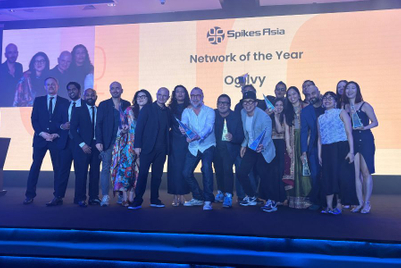
Since 2020 we have been witnessing things that only happen in movies and history books. As anxiety levels gradually rose around the world, in-person interactions dropped. Our rituals and traditions stopped, and gatherings with friends and family became rare and sacred. It has been, and still is, a difficult time for everyone in the world.
However, just as history books have shown, human beings are resilient and find ways to adapt. We’ve created new ways of living by thinking outside the box and looking at things from different angles to survive these unprecedented times. Whilst we come to grips with living with Covid, physical gatherings have become a threat and virtual interactions are the norm, so it’s easy to understand why brands would give up on offline spaces. However this would be shortsighted, and here’s why.
1. High-touch
Going through this pandemic, many parts of our lives migrated online. Words like augmented reality, virtual reality and the metaverse have become even closer to our real reality, especially going through the worldwide lockdowns. Getting invited to a housewarming party on Nintendo Animal Crossing and seeing WPP campuses on Minecraft just made things doubly real. In the midst of this shift, what value does a physical brand space bring to the table?
Retail space was evolving rapidly even before the pandemic—from a sales-driven platform to a brand expression space. Gentle Monster, an eyewear brand from Korea, opened Haus Dosan in Seoul in the middle of the pandemic as the start of its future retail series. The concept title of Haus Dosan is 'Unopened: Future', and it is expressed via futuristic artworks and kinetic installations. Prior to this, Gentle Monster had presented various styles of experimental brand spaces worldwide. When you walk into any Gentle Monster, you may not notice initially that it’s an eyewear brand, but you can 100% feel the disruptive vibe and daring philosophy of the brand. This makes people want to physically be there, to have the first-hand experience of the brand.

As society becomes more high-tech, demand for high-touch rises. The homogeneous market with countless competitors is making brand uniqueness and relevance even more significant. Anyone can make a pair of quality glasses and sunglasses, but Gentle Monster made its products more meaningful by displaying its distinctive stories in the physical spaces for people to "feel" the story behind the products, not just "know" about them. Contemporary consumers look for more authentic connections with brands, and the evolution of the physical environment strengthens relevance and market empathy. After almost two years of social distancing, it is time for brands to get (back) closer to people. And the value of high-touch experiences should be at the core of building brand affinity.
2. Phygital (physical + digital)
However, high-touch does not mean that high-tech should be omitted. Today, the customer journey is no longer linear. Multiple touchpoints can happen simultaneously, offline and online. Say you are buying your pasta sauce in a supermarket while browsing a Ragù Napoletano recipe on your phone. You might buy this sauce not because of a perfectly displayed poster in the supermarket but because of the recipe you found online. And this may apply to any offline retail journey.
Amazon has recently announced that it is launching a large-scale offline department store on the high street. The brand aims to provide new multi-sensory experiences by deploying AR/VR, creating a new hybrid place for shopping. Amazon also launched a future retail store based on its 'Just Walk Out' technology with The Hyundai department store in Korea last year. Called Uncommon Store, the location manifests Amazon's vision for O2O integration. I am hopeful that these tech-integrated retails spaces will empower us with more product knowledge and experiences. And that will enable us to make more adequate purchase decisions while being liberated from all the tedious processes that traditional offline stores currently have.
As more and more people are digital natives, high-tech has become a hygiene factor. High-tech should be fused as a tool to create a more informative, more efficient, more genuine and freer journey for customers to engage better (or more smoothly) with the brand. Amazon's attempt to 'move offline' has created a great deal of noise in the market, and whether it will succeed is still unclear. However, the new fusion of in-person and high-tech experience will definitely bring innovation and inspiration to the physical retail environment in the new era.
3. Balancing
Brands should embrace people's digital fatigue. Once we dreamed about being connected to everyone. Today, we live in a time where we are even connected to washing machines, rice cookers, cars and literally everything. In this hyper-connected world, it has been a while since keywords like retreat, healing, escape, meditation and digital detox have become a luxury. Being connected to everyone, everything and everywhere 24/7 has exhausted people. And the pandemic has amplified people’s desire for being ‘off’.
We have observed a pattern of successful online brands launching offline channels to provide diversified platforms for the market to connect with them in different ways. Three Squirrels, a mega snack brand in China started as an online-only brand, then stretched its experience to offline stores called, Feeding Stores. The brand created a quirky universe around the key brand asset, Three Squirrels, where the store is a mystical forest and all shop assistants are ‘squirrels'. The company's unique in-store services, such as the immediate free exchange of drinks you don't like, provide real-time solutions and interactions with customers. Various lifestyle merchandise and interactive experiences deepen the brand image to another level and brings the Three Squirrels to life in people's hearts. Feeding Store truly dimensionalized conversations between the customers and the squirrels, who used to only exist online. And this type of (re-)vitalization will be an interesting way to address digital downtime.

In the new era, how a brand perceives an offline channel will be a significant differentiator. Brands should leverage the trend of digital downtime and find a feasible on/offline balance to design more impactful and meaningful offline engagements. We do not deny the power of digitization. But we want to advocate the irreplaceable values that only offline (spaces) can offer. We should perceive digital fatigue as an opportunity to do things differently and reconnect meaningfully as we recover from the pandemic.
The world has changed. And it has been resetting many aspects of our lives, including the purpose of physical environment for brands. Going through these passive yet accelerated changes, we have so many questions that cannot be answered at this point, but we know that the role of physical space will be expanded in the future.
We must not be blinded by the illusion that online can solve all the problems solely. As we gaze into the window of this new 'Renaissance' opportunity, we need to reflect on our brand vision and repurpose our ‘space’ to cater to transformations. Brands should focus on building and enhancing market relevance by creating meaningful high-touch (offline) engagements with high-tech tools. With that in mind, I am excited about the creative revolution of future brand spaces and look forward to encountering the beauty of serendipity there!
Sung Min Bae is strategy director at Superunion Hong Kong.




.jpg&h=334&w=500&q=100&v=20250320&c=1)

+(1).jpg&h=334&w=500&q=100&v=20250320&c=1)
.jpg&h=334&w=500&q=100&v=20250320&c=1)

.jpg&h=334&w=500&q=100&v=20250320&c=1)

.jpeg&h=334&w=500&q=100&v=20250320&c=1)
.jpg&h=334&w=500&q=100&v=20250320&c=1)

.jpg&h=268&w=401&q=100&v=20250320&c=1)






